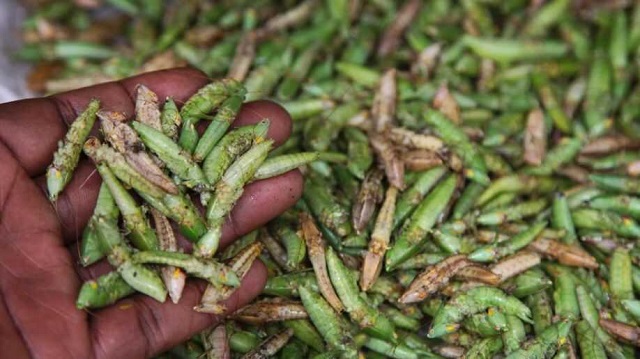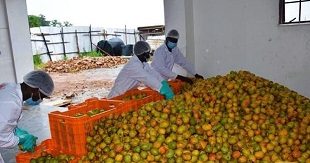
Masaka, Uganda | THE INDEPENDENT | The Uganda Bureau of Standards-UNBS has cautioned dealers in nsenene (edible grasshoppers) to abide by set national standards on edible insects, to protect the health of their consumers. The Uganda Standard (US 28 EAS 39:2002) for Edible Insects compels handlers to produce, prepare, and handle them in accordance with the Code of Practice for hygiene in the food and drink manufacturing industry.
The standard requires that the maximum content of aflatoxins in edible insects when determined in accordance with the method described in US ISO 16050, shall not exceed five to 10 micrograms per kilogram depending on the type of the toxic substance. A microgram is equivalent to a millionth of a gram. However, UNBS has reissued warnings about possible health effects that may arise from consuming improperly handled insects, especially if the standards are not observed.
The standard also requires that edible insects comply with the maximum heavy metal limits established by the CODEX Alimentarius Commission for similar commodities. The CODEX Alimentarius Commission is a specialized body set to implement the food standards set by the UN Food and Agriculture Organisation and the World Health Organisation.
Under the Uganda Standards, “edible insects shall comply with the maximum pesticide residue and veterinary residues limits established by Codex Alimentarius commission for similar commodities”.
The edible insects must be free from adulterants, unnecessary material, and objectionable odor, as well as free from infestation and contamination from pests.
While it is nearly impossible for an ordinary consumer to detect the presence of aflatoxins, UNBS says any suspicion of contamination should be reported through their toll-free numbers.
In March, the UNBS launched the Edible Insects Standard, US 2146:2020 Edible Insects –Specification, in collaboration with Makerere University School of Food Technology, Nutrition and Bio-Systems Engineering (Food Science) with support from the International Centre of Insect Physiology and Ecology (ICIPE).
UNBS says the standard is aimed at promoting safe consumption of edible insects which are harvested, processed, and traded for consumption, in Uganda. They also came at a time when Nsenene was gaining demand in the export market, especially by Ugandans in the diaspora.
In recent times, there have been concerns about alleged use of formalin, a preservative for dead bodies. Others reportedly use insecticide spray to keep flies away from highly perishable products.
***
URN
 The Independent Uganda: You get the Truth we Pay the Price
The Independent Uganda: You get the Truth we Pay the Price


